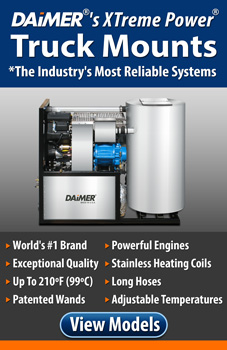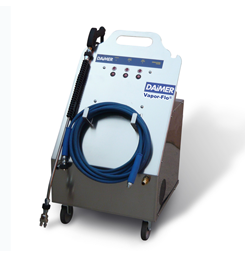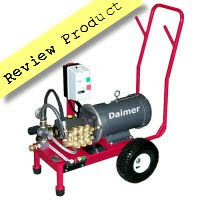Pressure washers are helpful machines when it comes to cleaning gas and service stations. These machines can provide an output pressure of up to 8000 psi, depending on the model. For added cleaning power, some of the latest machines can give an output temperature up to 330°F, as well. For the reason that such high steam temperatures greatly increase cleaning power, such machines have maximum pressure levels of 3500 psi.
In the face of the wide variety of options available, choosing a pressure washer machine for cleaning gas and service stations can be challenging. One must choose the right machine to get the best results. The following are some useful tips to choose pressure washers for cleaning service stations.
Opt For Steam Output
Pressure washers are classified into three categories based on the output temperature: Cold water machines, hot water machines, and steam machines. Cold water machines provide the output at room temperature. Hot water machines offer an output temperature of 210°F, and steam pressure washer equipment give an output temperature of 330°F. Steam temperatures offer the greatest cleaning power, enabling operators to dissolve even the most stubborn grease and oil markings on concrete and other surfaces.
Machines with steam capabilities can also be purchased as tri-mode machines, meaning they can be used as all three temperatures for a much wider range of cleaning applications.
Flow Rate
For cleaning gas and service stations with limited drainage facilities, pressure washers with low flow rate are often preferable. Machines from Daimer®, such as the Super Max™ 6120SCW, are commonly used for auto detailing vehicles and cleaning floors of service areas. With steam capabilities of 300°F and low flow rates of 0.5 GPM, operators can easily tackle tough cleaning tasks without flooding the area.
However, low flow rates are often not necessary in service stations and repair shops with proper indoor drainage or in the outdoor facilities of gas stations. If runoff down storm drains is not a concern, consider the Super Max™ 7000, a robust tri-mode pressure cleaner with pressure levels 1000 psi, a flow rate of 2.5 GPM, and steam temperatures up to 330°F.
Daimer® also offers green cleaning chemicals in their Eco-Green® line for additional power and non-toxic cleaning capabilities. Daimer®, a top supplier of cleaning machines, offers steam pressure washers and other cleaning machines and green chemicals of the highest quality.
In the face of the wide variety of options available, choosing a pressure washer machine for cleaning gas and service stations can be challenging. One must choose the right machine to get the best results. The following are some useful tips to choose pressure washers for cleaning service stations.
Opt For Steam Output
Pressure washers are classified into three categories based on the output temperature: Cold water machines, hot water machines, and steam machines. Cold water machines provide the output at room temperature. Hot water machines offer an output temperature of 210°F, and steam pressure washer equipment give an output temperature of 330°F. Steam temperatures offer the greatest cleaning power, enabling operators to dissolve even the most stubborn grease and oil markings on concrete and other surfaces.
Machines with steam capabilities can also be purchased as tri-mode machines, meaning they can be used as all three temperatures for a much wider range of cleaning applications.
Flow Rate
For cleaning gas and service stations with limited drainage facilities, pressure washers with low flow rate are often preferable. Machines from Daimer®, such as the Super Max™ 6120SCW, are commonly used for auto detailing vehicles and cleaning floors of service areas. With steam capabilities of 300°F and low flow rates of 0.5 GPM, operators can easily tackle tough cleaning tasks without flooding the area.
However, low flow rates are often not necessary in service stations and repair shops with proper indoor drainage or in the outdoor facilities of gas stations. If runoff down storm drains is not a concern, consider the Super Max™ 7000, a robust tri-mode pressure cleaner with pressure levels 1000 psi, a flow rate of 2.5 GPM, and steam temperatures up to 330°F.
Daimer® also offers green cleaning chemicals in their Eco-Green® line for additional power and non-toxic cleaning capabilities. Daimer®, a top supplier of cleaning machines, offers steam pressure washers and other cleaning machines and green chemicals of the highest quality.





































